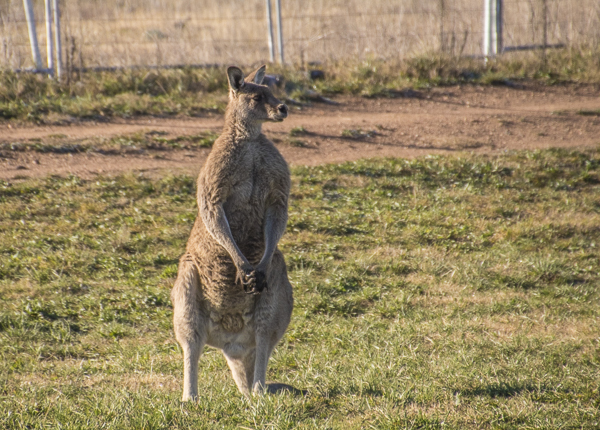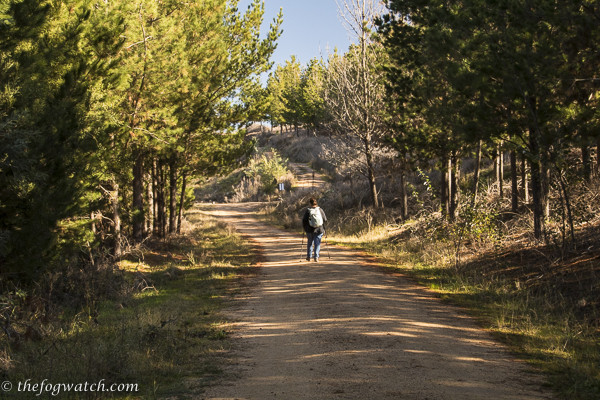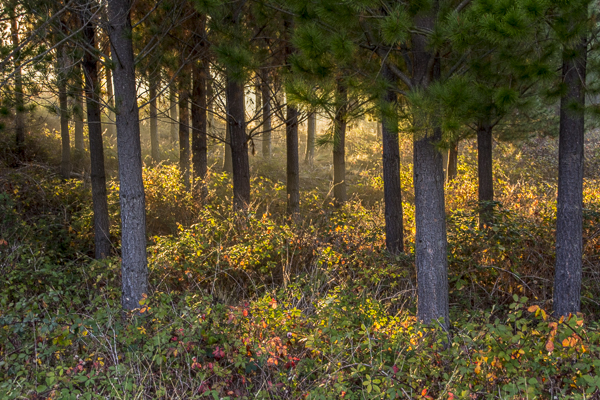We are marinating in information and distractive technologies. I noticed recently that I check my phone quite regularly from the time I wake up until the moment my head hits the pillow – just after I’ve plugged the phone into the charger. I do occasionally make actual phone calls, but mostly, the phone functions as a universal information device. It is the camera I have with me – as well as the computer on which I process some images. It enables me to upload those images to social media.
The phone is my instrument tuner – whether at practice or concerts. It also generates tones for tuning the plates when making instruments, and it is a decibel meter for loud places, and a recording device to improve my music practice and to record soundscapes – an image of another kind.
The phone gives me a data-rich means to monitor my fitness and provides feedback on progress towards my health goals. It is the GPS to guide me from place to place. It is the universal translator for travel overseas, and helps me reach my language learning goals.
Its library catalogue helps me avoid buying duplicates in bookshops (it wasn’t always the case) and it is a universal look-up and research tool – particularly when in wifi range. It is a travel blogging tool (with a small bluetooth keyboard), and it keeps my ebooks handy for a good read over coffee.
I watch a little TV in the evenings, but spend more time on the internet. I enjoy social media – it keeps me in touch with real friends and family near and far, and they – with the members of photo interest groups – provide (mostly) constructive feedback on my photos, and a reading list (blogs/zines/static sites) to help me follow my interests.
So I have a data-rich life, but how does that affect my ability to reflect? I thought to reflect on this when I read an article – encountered via social media – in the New York Times, titled “The End of Reflection” in which Teddy Wayne makes the following observation:
“There are many moments throughout my average day that, lacking print reading material in a previous era, were once occupied by thinking or observing my surroundings: walking or waiting somewhere, riding the subway, lying in bed unable to sleep or before mustering the energy to get up.
Now, though, I often find myself in these situations picking up my phone to check a notification, browse and read the internet, text, use an app or listen to audio (or, on rare occasions, engage in an old-fashioned “telephone call”). The last remaining place I’m guaranteed to be alone with my thoughts is in the shower.”
For me, that ‘last place’ is probably on my morning photowalks that masquerade as a fitness regime – walking 5-10km per day in the near countryside among the trees and kangaroos and birdlife around our national arboretum (yes we have a tree museum in Canberra(!)). The phone accompanies me on these walks, but is rarely used other than to monitor my distance travelled. I do stop to smell the lavender, and I observe the wildlife as it observes me.

For many, the device is all-absorbing, and part of a culture of instant gratification – indeed I still see a disturbing number of drivers texting while driving, or at least while stopped at traffic lights (haven’t they heard of Siri/hands-free?). I take a perverse delight when I see someone texting in the car behind at the lights, in taking off smartly when the lights change, leaving the hapless texter exposed with a queue of cars behind them waiting for him or her to notice the lights have changed.
As I contemplate undertaking the pilgrimage walk of the Camino de Santiago, I see people advising others to ‘leave the phone and camera at home’ as though they worry that somehow they won’t experience the Camino, but instead will have their noses in their devices all the way. But of course, it is more complex than that. I understand that it is important to ‘disconnect’ from the day-to-day world of the office or the hurley-burley of modern life… but… like it or not, we are a technological society.

I would have missed much of what I observe today if not for a camera. The camera has taught me to observe, to consider the nature of form, of contrasts light/dark, cool/warm, how light plays on the water. Am I not observing nature when I consider how best to take a photo of frost on red and green leaves? Am I not observing nature in marvelling at the texture of light at dawn and play of rays through the morning mist. I don’t look at life through a camera lens, but I do set out to capture for later recollection those wonders I see with my own eyes.

For those who think that carrying a device means being less authentic, consider that the early travellers and pilgrims carried books for reading and sketchbooks for capturing those scenes that caused them to stop at the dew on a branch, or a sudden view of a lake or ruined castle.
By all means take the device, but I think it is important to keep it in perspective – the device is secondary to the experience, but it can enrich that experience enormously.

